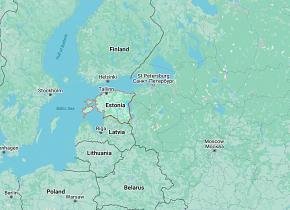When Justice is only for the Rich
Too poor to afford a lawyer, but not poor enough to qualify for legal aid, this has been the situation for several years for thousands of people living in Canada. Hourly rates for Canadian lawyers could go as high as $450, which means a five-day long civil litigation is very much guaranteed to break the bank for the average middle-income earner and according to reports on cbc.ca, is “roughly $16,000 more than the median take-home pay in a single-parent family.â€
The Canadian Lawyer carried out a 2018 survey which revealed that the hourly rates for lawyers in the different practice areas. Lawyers who had been practicing for a year or less charged as follows: Business Law $196.14, Civil Litigation $192.70, Criminal Law $207.33, Family Law $199.52, Immigration Law $201.67, Intellectual Property Law $231.25, Labour & Employment Law $192.27, Real Estate Law $182.70, Wills & Estates Law $180.37. These charges went even higher as the lawyers years of practice experience increased, going as high as $457.22 for Intellectual Property Law for lawyers with up to 11 years of practice experience.
These numbers have made it almost impossible for average income earning families to seek quality legal assistance, and has led many people to turn to self-representation. There are several arguments against self-representation;first, being that they are not lawyers, these people cannot fully understand the process or paperwork required for legal proceedings. It goes without saying that self-represented litigants would most times lose out against practicing lawyers.
According to Andrew Feldstein in 2016 “The situation is most dire in family law. As many as eight out of ten Canadians involved in family law proceedings represent themselves.†According to cbc.ca, Ontario's single parents must make less than $20,994 to qualify for a certificate to cover lawyer's fees. They can get partial funding if their income stays below $25,282. This means that a single parent earning $30, 000 and going through a divorce would have no other options than self-representation as the legal fees would be too high, considering other expenses they have to consider such as mortgages and tuition.
A few organizations exist, however, that offer pro bono work to people who cannot afford legal counsel. This seems to be the only hope for the poor in Canada. There is Pro Bono Law Ontario (PBLO) which is an organization that promotes access to justice in Ontario by creating and promoting opportunities for lawyers to provide pro bono (free) legal services to persons of limited. A similar organization is Downtown Legal Services in Toronto, which provides a service similar to full representation. There, law students, are guided by qualified lawyers to provide pro bono work for people who cannot afford lawyers.
Sarah Lugtig, the chair of the Canadian Bar Association's access to justice committee, once stated on this issue, "People do better in court when they have legal representation, there's been research that's shown that very clearly," Lugtig said. "And it makes sense — the system is actually designed for lawyers, it's not designed for people."
Some critics have blamed mounting course of legal representation on lawyers, who graduate law school with massive students' loans to be repaid and as such focus only on making a profit, as soon as they are out of law school. It is obvious that a legislative reform in this area is long overdue.
Comments
There are 0 comments on this post













